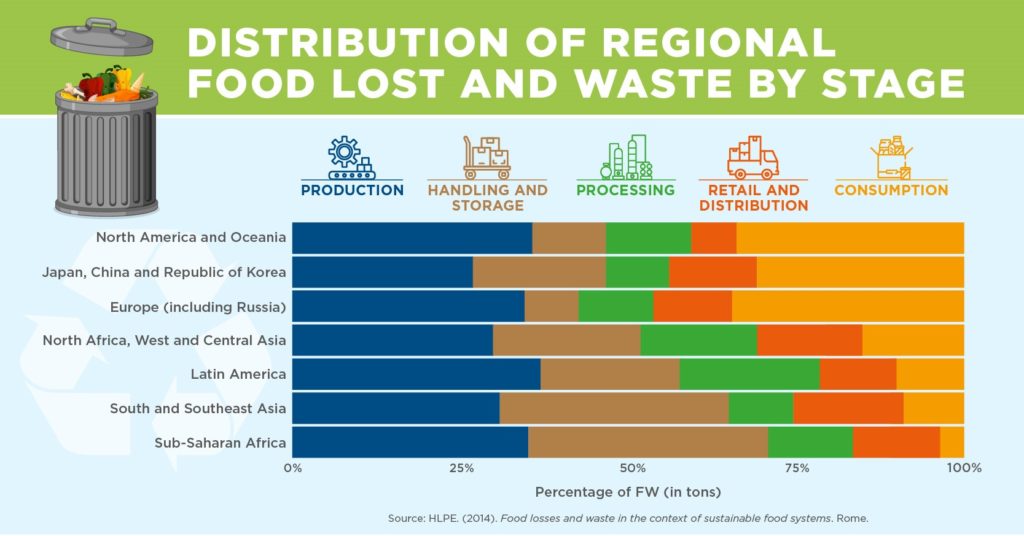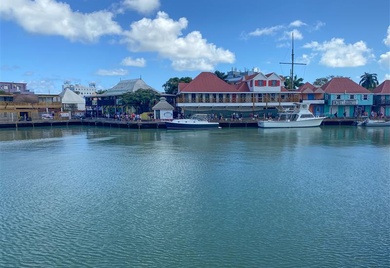Why Should the Tourism Sector Care About Food Waste?

Food waste is a monumental problem. Every year, one third of all food produced for human consumption is lost or wasted. This amounts to 1.3 billion tons, about 180,000 Eiffel Towers' worth of food.
It is also responsible for an astonishing 8 percent of global carbon emissions. Consider all the water, energy and other resources that go into producing, transporting, processing, and selling food, as well as the emissions and other byproducts generated along the way. When food is wasted, these negative environmental impacts are generated in vain. And disposing of unused food further impacts our ecosystems and landfills.
By 2030, food waste is expected to increase by 60 percent, resulting in a loss of over US$1.5 trillion. It is not surprising that this challenge has its own target within the Sustainable Development Goals (SDG 12), aiming to cut global food waste in half by 2030.
Food is lost at various points along the route from farm to table. In developing countries, most losses occur in the production, handling, and storage phases of the food value chain. For example, Latin America and the Caribbean, one of the world’s primary breadbaskets, is responsible for 10 percent of global food waste (127 million tons), in part due to weak infrastructure and poorly organized value chains.
In contrast, in developed countries food waste occurs primarily in the final consumption stage. Since value is added to food as it moves through the value chain from production to consumption (i.e., from rice in the field to risotto served in a restaurant), the economic cost of food waste is highest at the final consumption stage.
Tourism is strategic for reducing food waste
Given the cumulative and incremental effect on environmental impacts and economic losses as the value chain progresses, the tourism sector is a strategic industry to reduce food waste. A forthcoming study by IDB Invest will dig deeper into the issue of food waste in the tourism sector, focusing on both the challenges and opportunities it brings for hotels, cruises, and convention centers in Latin America and the Caribbean.

While the lack of reliable data makes it hard to quantify the magnitude of the problem in the tourism sector, some key drivers of food waste are evident. Take for example the ubiquitous self-service buffet. While this way of presenting food may be attractive for guests, it also encourages waste. Not only do people typically take more than they can eat, but food safety precautions and regulations lead to untouched buffet food getting discarded.
You may also like:
- Why Does Latin America and the Caribbean Need to Discuss About Proptech?
- What Can Latin America and the Caribbean Expect from the Machine Learning Revolution?
- Six LatinFinance 2019 Awards Recognizing IDB Invest’s Efforts
Overproduction is another common problem, fueled by the unpredictability of demand and the desire of the hospitality industry to promote a sense of abundance to customers when it comes to food. A study of 450 hospitality businesses (restaurants, hotels, caterers, etc.) across 25 countries found that between 8 to 20 percent of total food costs are due to overproduction, kitchen errors, spoilage or damaged produce, and customer leftovers. Often, food waste can equal or surpass the net profits from a business, which warrants the attention of those watching the bottom line.
Incentives for action
The good news is that the tourism sector is increasingly implementing better food waste management processes. Established lodging operators such as Accor, Hilton, and Hyatt have set goals to cut food waste by 30 percent by 2030.
This sector is better prepared than others to address these issues thanks to an industry-wide culture of implementing environmental management systems and green certifications. Take for instance towel and bedsheet reuse programs, low flow faucets, and motion detection light sensors that have now become mainstream across hotels. Likewise, the fact that food waste means money wasted is an additional incentive for tourism players to act, especially all-inclusive hotels, resorts, cruises, and convention centers for which food is a core part of their business.
Customers, investors, and other stakeholders are increasingly paying attention to how hospitality players address sustainability, including issues such as food waste. We have seen how the social media-driven backlash against plastic straws has gone viral, pushing many corporations, including the world’s largest hotel company, Marriott, to ban their use. While tackling food waste is much more complex, this sort of external pressure can help accelerate a call to action in the tourism sector.
In a world where 1 in 9 people suffer from hunger, the fact that more than 1 billion tons of food is never consumed is a paradox. Knowing that if only one-fourth of all food loss and waste could be rescued, world hunger could be extinguished, should serve for a moment of deep reflection.
At IDB Invest we are committed to thinking through innovative ways to help our clients in the tourism sector mitigate the impacts of food waste in Latin American and the Caribbean.■
Stay tuned for a follow up blog and a forthcoming study by IDB Invest focusing on the challenges and opportunities of food waste for the region’s tourism sector.
LIKE WHAT YOU JUST READ?
Subscribe to our mailing list to stay informed on the latest IDB Invest news, blog posts, upcoming events, and to learn more about specific areas of interest.
Subscribe



